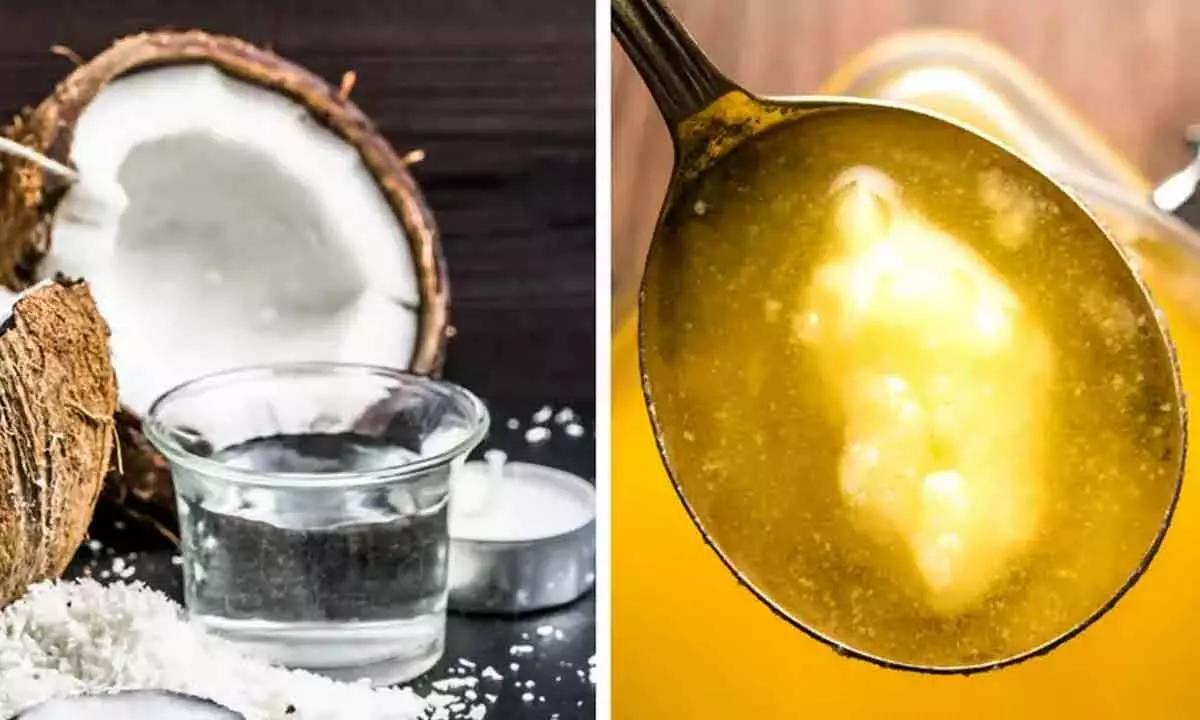Limit ghee, coconut oil if you have fatty liver disease: Expert
Share :

As fatty liver disease is increasing in India, a noted hepatologist on Wednesday advised limiting consumption of saturated fats like ghee and coconut oil.
Fatty liver disease is related to obesity and diabetes. Consuming excessive carbohydrates can raise insulin levels, and chronic high insulin levels lead to insulin resistance. This disrupts metabolism and converts excess glucose into fatty acids, which are stored in the liver.
It can be classified into two main types: alcoholic fatty liver disease (AFLD) and non-alcoholic fatty liver disease (NAFLD/MASLD) -- linked to liver inflammation and damage, eventually leading to fibrosis, cirrhosis, or liver cancer.
"In the Indian context, if you have metabolic-disorder-associated fatty liver disease (previously NAFLD), remember to limit saturated fat sources in your diet," said Dr Abby Phillips, popularly known as LiverDoc, on the social media platform X.com.
"This means limiting foods containing Ghee, clarified butter (north India), Coconut oil (south India), and Palm oil (processed/ ultra-processed foods)," he explained, adding that "saturated fats increase liver triglycerides and hence liver fat and inflammation."
While ghee is traditionally considered healthy, the doctor noted that it "is not a superfood. It is a super danger. It is almost all fat, and more than 60 per cent is saturated (unhealthy) fat."
He stressed the need to replace it with "healthier (vegetable) seed oils that have low saturated fat and trans-fat content."
Dr Abby also recommended using a diverse range of seed oils in daily cooking. Instead of frying food items, he suggested "bake, boil, broil, grill, or steaming foods."
He also called out to "increase portions of plant-based protein in daily meals and to add daily fresh cut fruit portions (instead of fruit juicing)."
"This is far more important than limiting meat (including lean meat more than red meat), fish, and eggs -- all of which can be consumed in their recommended daily/weekly intake," the doctor said.










